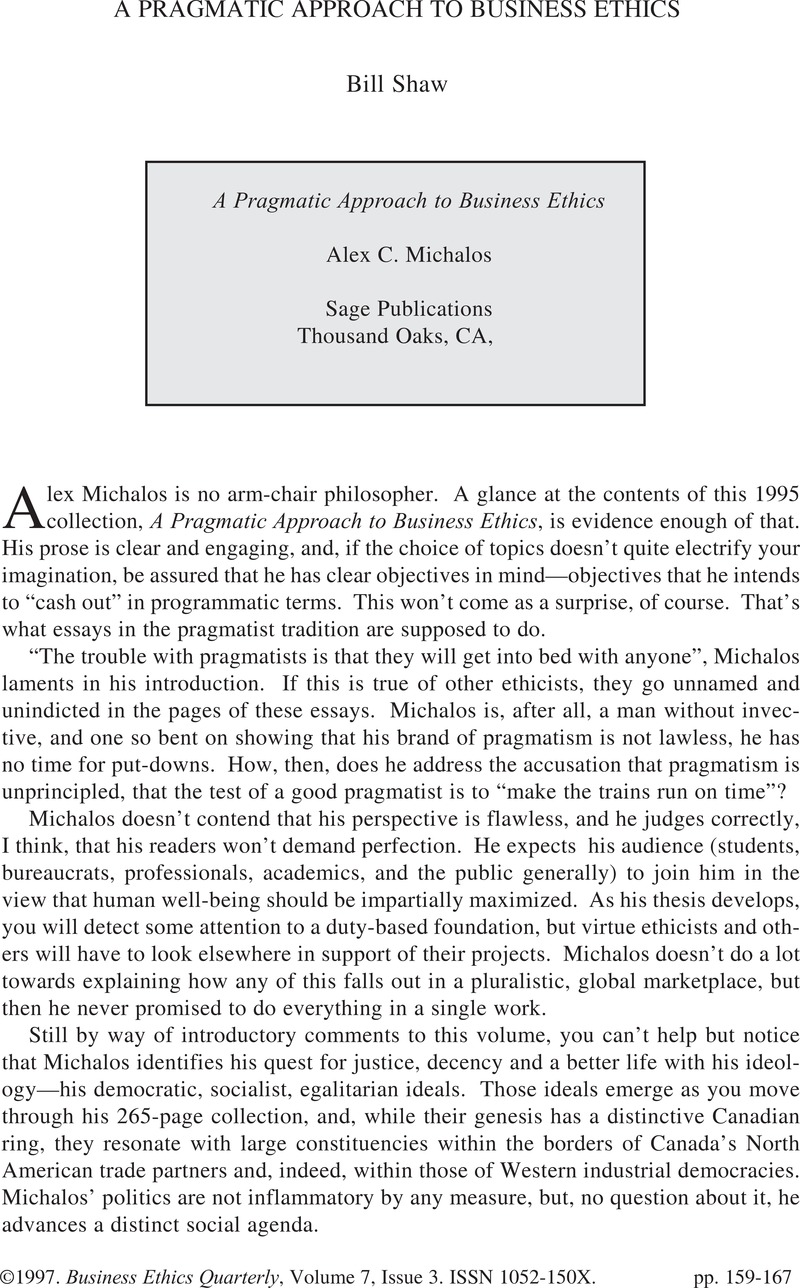10In Chapter Four, The Loyal Agent’s Argument, Michalos identifies selfishness with egoism, as follows: “In conflict situations when there are not enough benefits to satisfy everyone, he will try to see that his own needs are satisfied, whatever happens to the needs of others. He is more interested in being first than in being nice, and he assumes that everyone else is too. He may harbor the suspicion that if everyone behaved as he does, the world’s resources would be used in a maximally efficient way and everyone would be materially better off. But these are secondary considerations at best. His first consideration, which he only regards as prudent or smart, is to look out for Numero Uno, himself.” (
46–
47) This is the view that Michalos seems to import into the “worst argument.” If this is an appropriate move, you can see how his concerns about this argument emerge from the premise.
Google Scholar 